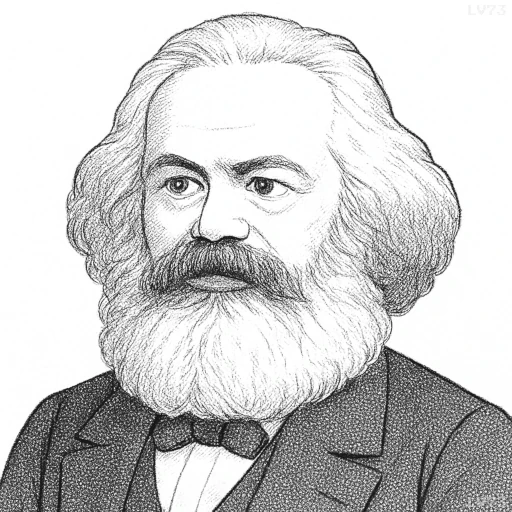“The theory of Communism may be summed up in one sentence: Abolish all private property.”

- May 5, 1818 – March 14, 1883
- Born in the Kingdom of Prussia (Germany)
- Philosopher, economist, political thinker
table of contents
Quote
“The theory of Communism may be summed up in one sentence: Abolish all private property.”
Explanation
In this quote, Marx encapsulates the essence of communist theory, which calls for the abolition of private property—particularly the private ownership of the means of production. Marx argues that the institution of private property, in capitalist society, leads to class divisions and the exploitation of the working class (the proletariat) by the capitalist class (the bourgeoisie). Property, in this sense, is not just about personal belongings, but more significantly about the control over the resources and productive forces of society, such as land, factories, and machinery. Under capitalism, the ownership of these resources enables a small class of individuals to accumulate wealth and power, while the majority of people are forced to sell their labor to survive.
Historically, Marx believed that the abolition of private property was necessary for the liberation of the working class. In a capitalist system, the vast majority of people do not own the means of production, and thus their labor is exploited by the bourgeoisie, who profit from the workers’ labor without contributing to the actual work. By abolishing private property, Marx envisioned a system in which the means of production would be collectively owned and managed, allowing for a more egalitarian and just society. This would eliminate the class distinctions between the bourgeoisie and the proletariat, leading to the establishment of a classless society.
In modern times, the idea of abolishing private property remains a central and contentious issue in socialist and communist movements. While private property is often understood as a fundamental right in capitalist societies, Marx’s idea challenges the concentration of wealth and power in the hands of a few individuals or corporations, especially when those individuals or entities control large swaths of society’s productive resources. The debate over land reform, corporate power, and the redistribution of wealth in today’s world echoes Marx’s call for the abolition of private property—or, more specifically, the transformation of how property rights are structured and who holds control over the means of production. Marx’s critique of private property continues to inspire discussions about the concentration of wealth and the role of state intervention or collective ownership in addressing social inequality.
Would you like to share your impressions or related stories about this quote in the comments section?

